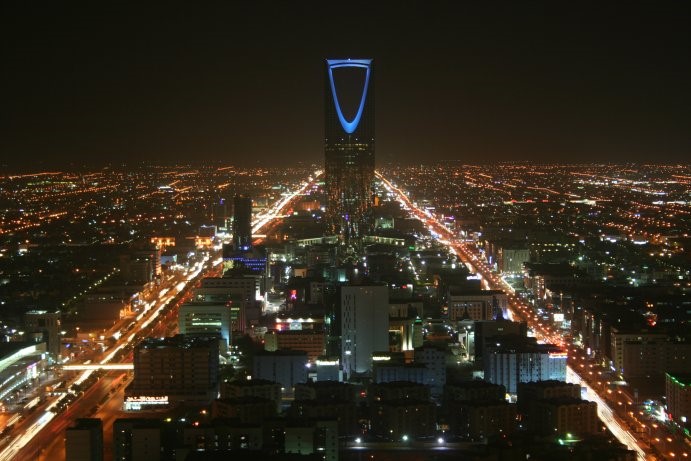 Photo Permission: Creative Commons
Photo Permission: Creative Commons
Saudi Oil Crisis at Home Spells Trouble for International Stability
By Katherine Weingartner, WiSe Leadership Initiative Fellow and Clean Energy Leadership Institute (CELI) Fellow
With the 2015 rise of the new monarch, King Salman, billions of dollars flooded the pockets of Saudis. The country has acquired massive wealth as the world’s largest petroleum exporter, and with 18 percent of global proven petroleum reserves, it might seem that the blessings of oil may never end. This perception is a false one.
Saudi Arabia’s out-of-control domestic oil consumption creates a significant risk to national, regional, and international security that may only be cured by a successful energy transition towards solar. The next US administration must make dealing with the repercussions of Saudi consumption a top priority.
Out of Control Domestic Consumption
At the current rate of domestic oil consumption, some predict that Saudi Arabia could become a net oil importer by 2030. Although Saudi Arabia has produced more oil than ever before in recent years, domestic consumption is almost twice what it was ten years ago. High government oil subsidies put gasoline at $0.50/gallon and electricity as low as $0.01/kWh, astonishingly low compared to the U.S. averages of $2.2/gallon and $0.11/kWh. These rates offer little incentive for Saudis to curb their consumption. The problem is compounded by a highly inefficient energy infrastructure, an outdated energy generation strategy that involves burning oil directly, and a rapidly growing population. Every barrel of oil consumed at home is a barrel that cannot be exported, and the stability of the country depends on these exports.
The Social, Political, and Economic Importance of Oil
The Saudi petroleum sector is responsible for 45 percent of GDP, 80 percent of budget revenue, and a staggering 90 percent of export earnings. This makes the state extremely susceptible to oil price fluctuations. The International Monetary Fund has said Saudi Arabia’s money could run out within five years if nothing is done to curb its spending. The government projects a $87 billion deficit this year.
Saudi Arabia uses its large spare oil capacity to influence the global oil market and extend its power not only globally, but regionally. Oil money fuels Saudi political campaigns, particularly against its political rival, Iran, as both oil export-dependent countries struggle to compete for market share and dominance. If Saudi Arabia’s revenue from oil exports slips, so does its ability to fund its run for regional hegemony.
The Saudi government introduced economic reforms this year which included reductions in oil subsidies to address the consumption issue. This challenges its social contract with Saudi citizens, threatening to fuel unrest at a time when Islamist extremism is a growing issue. Simultaneously, not reducing domestic consumption can inspire its own tensions. Social services depend on oil revenue as Saudi citizens do not pay personal income tax. An inability to provide these services can cause severe social turbulence.
Fear of Losing Dominance Drives Support for Domestic Solar
Fears of losing political and economic dominance have driven Saudi Arabia to seek an alternative to oil. Situated in the world’s sun belt, Saudi Arabia enjoys some of the most intense sunlight on earth, making solar an ideal choice. Indeed, Saudi Arabia’s average solar irradiation levels are twice as high as in Germany, and the Saudi desert boasts ample space for installations. The falling cost of solar makes its deployment even more feasible.
Some in Saudi leadership support greater solar investment. Prince Mohammed bin Salman bin Abdulaziz Al-Saud, chairman of the council responsible for the country’s economic policy, drafted the Vision 2030 reform plan which makes investment in renewable energy, specifically solar, a top priority. Even Aramco Energy Ventures, a subsidiary of the world’s largest oil company, Saudi Aramco, has committed to investing in renewable energy and energy efficiency. Looking forward, Saudi Arabia hopes a competitive export market for Saudi solar panels can create more high-paying tech jobs for a growing youth population.
Challenges to Creating Domestic Solar Industry
Although the need to curb domestic oil consumption is high and the potential for solar is great, succeeding in solar is not without its hurdles. Technical obstacles, constant dust and sandstorms that reduce panel efficiency, inefficient solar production management and spending, and a failure of government to create clear economic incentives to encourage businesses to invest in solar are just some of the challenges that must be overcome.
Saudi Arabia is a notable US ally and player in the Middle East. Its success in mitigating its domestic consumption has wide-ranging security implications. The next US administration must consider how its policies can impact this issue. There is too much at stake not to.






